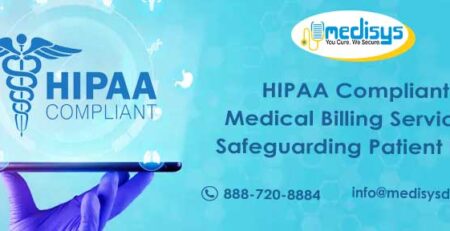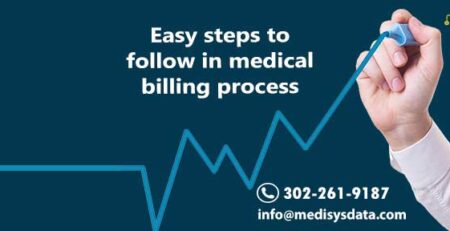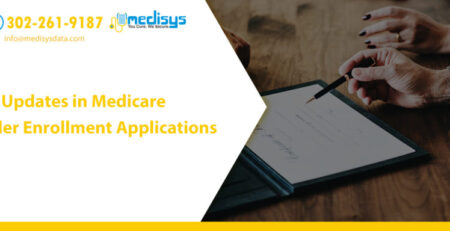Introduction
Medical billing has evolved significantly over the years, moving from manual processes to sophisticated digital systems. As healthcare providers strive for efficiency and accuracy, the integration of advanced technologies like data analytics and artificial intelligence (AI) has become crucial. This article explores how these innovations are transforming medical billing practices, offering insights into the benefits and applications for healthcare providers.
Medical Billing Best Practices: Utilizing Advanced Technologies
1. Integrating Data Analytics into Medical Billing
Predictive Analytics for Revenue Cycle Management
Predictive analytics is revolutionizing revenue cycle management by enabling healthcare providers to forecast cash flow and identify potential issues before they arise. By analyzing historical billing data, predictive models can highlight trends and predict future outcomes, allowing for proactive management. This helps in optimizing billing schedules, reducing delays, and improving overall financial health.
Identifying Billing Patterns and Trends
Data analytics can uncover common billing errors and trends in claim denials, providing actionable insights for process improvement. By continuously monitoring and analyzing billing data, healthcare providers can identify patterns that may lead to denials or delays. This proactive approach helps in refining billing practices, ensuring higher accuracy and efficiency.
Enhancing Patient Payment Collections
Understanding patient payment behaviors through data analytics allows healthcare providers to develop strategies that improve collection rates. By segmenting patients based on their payment history and behavior, providers can tailor their communication and payment options. This personalized approach enhances patient satisfaction and increases the likelihood of timely payments.
2. The Role of Artificial Intelligence in Medical Billing
Automating Claims Processing
AI is streamlining the claims processing workflow by automating repetitive tasks such as claims scrubbing, submission, and follow-up. By reducing manual intervention, AI minimizes errors and accelerates the billing process. Automated systems can quickly identify discrepancies and correct them, ensuring cleaner claims and faster reimbursements.
AI-Powered Denial Management
AI can significantly reduce claim denials by predicting and preventing errors before claims are submitted. By analyzing historical data, AI systems can identify patterns that lead to denials and recommend corrective actions. This proactive approach not only reduces denials but also improves the overall efficiency of the billing process.
Natural Language Processing (NLP) in Billing
Natural Language Processing (NLP) enhances medical billing by interpreting clinical notes and ensuring accurate coding and billing. NLP algorithms can extract relevant information from unstructured clinical data, facilitating precise coding. This not only improves accuracy but also speeds up the billing process, leading to quicker reimbursements.
3. Blockchain Technology in Medical Billing
Secure and Transparent Transactions
Blockchain technology offers a secure and transparent way to handle medical billing transactions. By providing an immutable record of all transactions, blockchain reduces the risk of fraud and enhances trust between providers and payers. Each transaction is securely recorded, ensuring data integrity and transparency.
Smart Contracts
Smart contracts are automated, rule-based systems that facilitate the processing of claims and payments. These contracts execute predefined actions when specific conditions are met, streamlining the billing process.
Patient Data Security
Blockchain ensures the secure storage and sharing of patient billing information. By decentralizing data storage, blockchain minimizes the risk of data breaches and unauthorized access. Patients can have greater confidence in the security of their personal information, leading to improved trust and satisfaction.
4. Advanced Patient Engagement Strategies
Personalized Billing Communication
Personalized communication based on patient preferences and behaviors enhances the billing experience. By using data to understand patient needs, healthcare providers can tailor their billing communication, making it more relevant and effective. Personalized billing statements and reminders can significantly improve patient satisfaction and payment compliance.
Mobile Billing Solutions
Implementing mobile-friendly billing solutions offers patients the convenience of managing their bills on the go. Mobile apps and platforms enable patients to view their statements, make payments, and manage their accounts from their smartphones. This convenience can lead to higher payment rates and improved patient engagement.
Patient Portals and Self-Service Options
Advanced self-service options empower patients to take control of their billing process. Patient portals allow individuals to access their billing information, make payments, and resolve issues independently. This not only improves patient satisfaction but also reduces the administrative burden on healthcare providers.
5. Regulatory Compliance and Advanced Billing
Staying Ahead with AI and Analytics
Advanced technologies like AI and data analytics help healthcare providers stay compliant with ever-changing regulations. These tools continuously monitor billing practices and ensure they align with current regulations. By providing real-time updates and alerts, AI and analytics help prevent compliance issues and reduce the risk of penalties.
Real-Time Compliance Checks
Implementing systems that perform real-time compliance checks ensures that all claims meet regulatory standards before submission. These systems analyze claims for potential compliance violations and alert billing staff to any issues. Real-time compliance checks help maintain high standards of accuracy and avoid costly errors.
To conclude,
The integration of advanced technologies such as data analytics, AI, and blockchain is transforming medical billing practices. These innovations offer healthcare providers unprecedented opportunities to enhance efficiency, accuracy, and patient satisfaction. By adopting these advanced practices, providers can stay competitive, optimize their revenue cycle, and deliver better patient experiences. Continuous exploration and implementation of these technologies are key to staying ahead in the evolving landscape of medical billing.
About Medisys
Medisys is a leading medical billing company dedicated to providing comprehensive billing services to healthcare providers across the USA. With a team of experienced professionals and cutting-edge technology, Medisys ensures accurate and timely claims processing, reducing denials and maximizing revenue. Their services include end-to-end revenue cycle management, coding accuracy, compliance assurance, and patient billing support. By partnering with Medisys, healthcare providers can focus on delivering quality patient care while Medisys handles the complexities of medical billing, ensuring financial stability and operational efficiency.
References:












